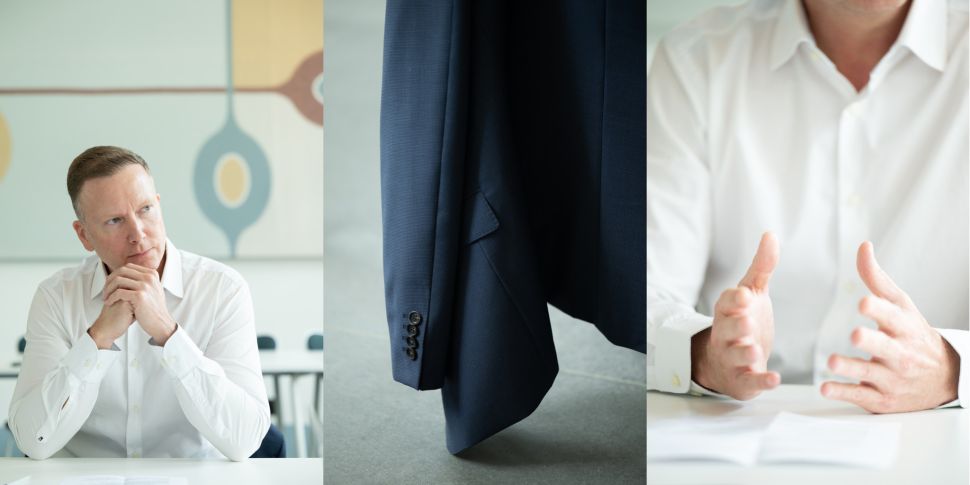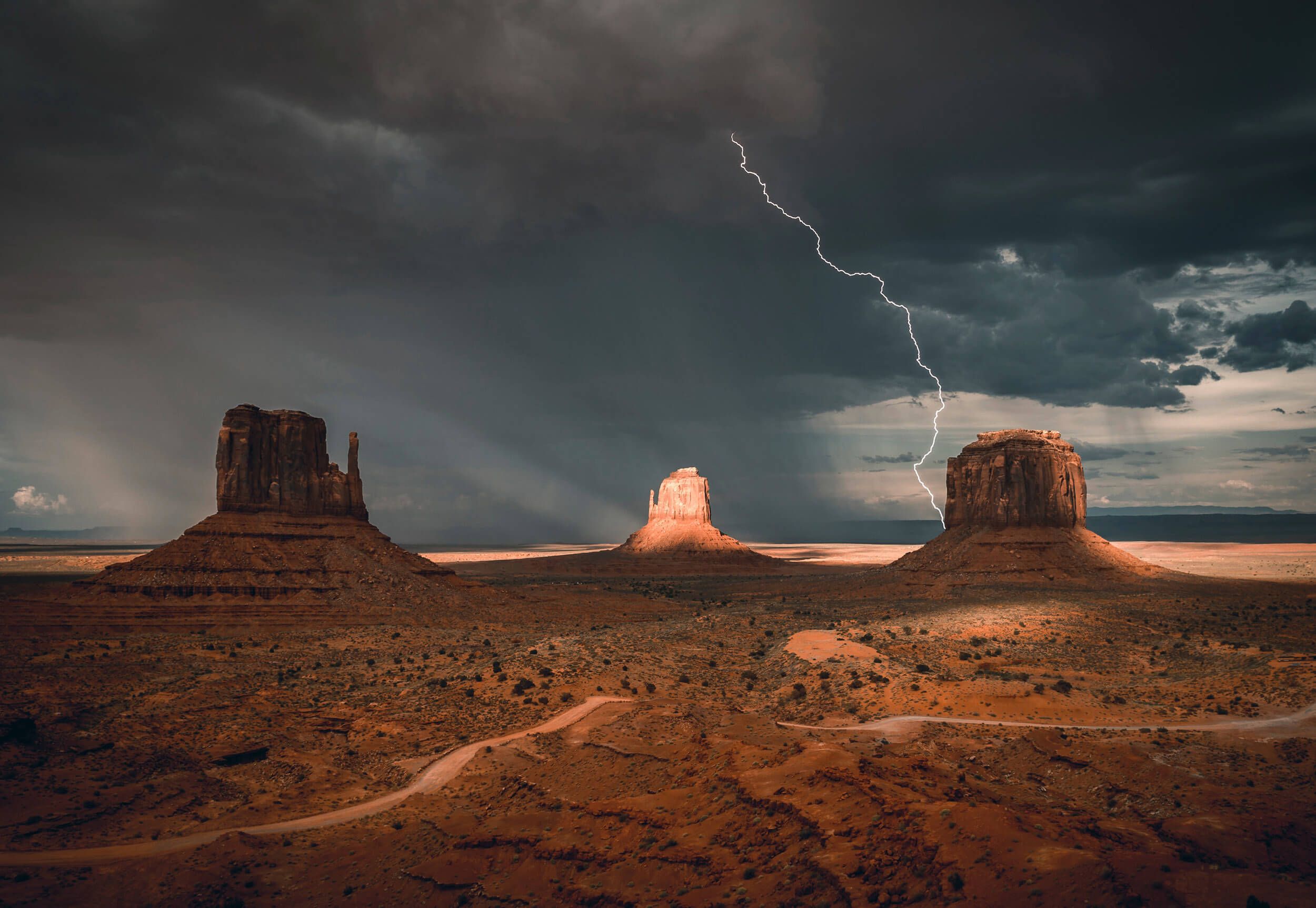
Stefan Höchle (left) and Pirmin Hotz (right) disagree. While one emphasises the technology behind the currency, the other compares the digital asset to cow dung.
When two people argue about Bitcoin
CRYPTO DUEL Opinions continue to differ on cryptocurrency. “Finanz und Wirtschaft” has pitted a critic against a supporter in a debate.
The slating of Bitcoin in this newspaper by Pirmin Hotz, founder of Dr. Pirmin Hotz Vermögensverwaltung, has made big waves. Among others, Stefan Höchle, Head Investment Strategy at Digital Asset Solutions, responded directly to Hotz’s arguments in his reply.
Both articles and the comments received in response show that the need for discussion remains great. Finanz und Wirtschaft has therefore invited both experts to a direct, verbal exchange of blows.

«The financial industry has always been brutal at making money.»
Let’s start with a simple question: What is Bitcoin for you, Mr Hotz?
Pirmin Hotz: Bitcoin was originally a digital currency that failed miserably as a means of payment. I live in the so-called Crypto Valley in the canton of Zug and don’t know anyone who has ever paid with crypto. Because it failed so spectacularly, it has now degenerated into a mere object of speculation.
That doesn’t quite correspond to your view, Mr Höchle?
Stefan Höchle: No, for me Bitcoin is of course more than pure speculation. It is important to understand Bitcoin and not just look at the price of Bitcoin. Of course, the price is speculative, but if you look at the concept of Bitcoin, it is a new, decentralised monetary infrastructure. This has made it possible for the first time to transfer not only information but also value via the Internet without an intermediary. Unlike gold, equities or fiat, this system is fundamentally resistant to censorship, cannot be confiscated and has no counterparty risk – that is a fundamental difference. And it was on this network that the digital currency Bitcoin was founded.
But you agree with Mr Hotz that Bitcoin has not fulfilled its original purpose as a means of payment?
Höchle: No, I don’t agree with him there either. On the one hand, fiat money should be a unit of account, accepted as a means of payment and serve as a store of value. The dominant function of Bitcoin was the store of value. Especially in countries with high inflation or capital restrictions, people actively use Bitcoin to protect their purchasing power.
Value is held in asset classes. Is Bitcoin one of these?
Hotz: I learned at school that asset classes have a background. Shares are equity securities in companies that produce something and create added value. The shareholder receives dividends as compensation for their risk and benefits from a long-term capital gain. When you buy property, you receive rental income. I see absolutely nothing behind Bitcoin. It is based solely on the principle of faith and hope. The technology behind it may be interesting, but I don’t get a share of it with a Bitcoin. In other words: the intrinsic value of a Bitcoin is de facto zero, so the value of all Bitcoin is also zero.
Mr Höchle, you are shaking your head. What do you say to that?
Höchle: I am repeating myself, but Bitcoin is not only a currency, but also a network that enables value storage and transfer without an intermediary. This concept would have no intrinsic value if the network is not adapted. Equating a decentralised, monetary network with equities is like comparing apples with oranges. That falls short. Based on market capitalisation, the market currently values the Bitcoin network at $2.3 trillion. In addition, around 400,000 transactions totalling around $50 billion take place on the network every day. Mr Hotz negates all this when he says that it has no intrinsic value.
And then there is performance, which is also an important factor for an asset class.
Höchle: That’s right, and there is no better asset in the world that has performed at an average annualised return (CAGR) of around 80% over the past ten years – and that’s without the extreme rise years from the early days in the cent range.
Hotz: If you analyse the equity market – in my view the most attractive asset class in the long term – then you arrive at an average return of around 8%, which is likely to continue to be generated. Then Bitcoin comes along at 80% and makes equities look downright pathetic. That alone should be enough to recognise that Bitcoin is a hype without substance.
You, Mr Hotz, have already compared Bitcoin with the tulip bubble. Bitcoin has survived several bear markets. Isn’t the comparison a bit far-fetched?
Hotz: No, it’s actually even worse. A bubble is an overvaluation of a value. With Bitcoin, however, there is no valuation at all. There is simply no such thing as a fair price. In the case of Nestlé, for example, analysts can say that the fair price is somewhere around CHF 80 per share. Nobody would come up with the idea of saying that the fair price is CHF 10 million, but that’s what happened with Bitcoin. Suddenly it has risen from 0.8 cents to $100,000.
Höchle: It wasn’t sudden. After all, it took 17 years.
Hotz: For me, 17 years is a blip in history.
And yet we can no longer speak of a new phenomenon.
Hotz: That’s right, it’s been working for a few years now. This is comparable to a sect or a religion. If the Bitcoin sect continues to succeed in increasing its believers and spreading, then I do not rule out a price of $20 million per Bitcoin. With social media and the countless influencers, the herd instinct works so well that there is practically no limit.
Höchle: Perhaps we should differentiate between the different types of bubbles. There are certainly bubbles that arise without fundamental drivers. After they burst, nobody talks about them any more. But then there are bubbles where price expectations have simply become irrational. After the dotcom bubble burst, the Internet and the resulting multinational corporations such as Alphabet continued to exist. The same applies to Bitcoin. In the bear markets, the share price corrected by up to 90%. If there were no fundamental value behind Bitcoin, it would be history today. But it has always recovered – and that is due to the network behind the coin, which Mr Hotz is so keen to ignore.

«There is an entire ecosystem around Bitcoin that is constantly evolving.»
What do you say to the accusation that it is simply a community of faith?
Höchle: We are talking here about a digital asset with a market capitalisation of $2.3 trillion, which has now been taken up in the institutional environment and in which investments are being made across a broad front – from private investors to companies and governments. There is an entire ecosystem around Bitcoin that is constantly evolving. The world’s largest asset managers are including Bitcoin in their allocations. To dismiss this as a sect is very simplistic and of course wrong.
Mr Hotz, you have to admit: Bitcoin has arrived at the centre of the financial market.
Hotz: The financial industry has always been brutal at making money. Wherever money can be made, it will be made. A few years ago, Larry Fink, the head of BlackRock, described cryptocurrencies as a means of money laundering. Today, his company earns millions from fees on the Bitcoin ETF. In Switzerland, even PostFinance, a traditional retail bank, has joined in. You have to realise that. Behind this is the Fomo effect – Fear of Missing Out – on the one hand and the pressure to earn money on the other.
Mr Höchle, the fact that institutions like BlackRock are jumping on the bandwagon probably really has to do with the fact that they want a slice of the cake.
Höchle: Mr Hotz acts as if these companies are being forced to participate. The free market is driven by supply and demand. The demand is there, so the supply is also being built up. When he refers to Larry Fink, it must be said that a certain learning process took place here and it took a while to understand what Bitcoin represents. This understanding is ultimately decisive.
Then Mr Hotz simply doesn't understand it?
Höchle: I believe that...
Hotz: You are allowed to say no.
Höchle: What is not fully understood is what a monetary infrastructure with adoption represents, the value of which is determined by the free market. This is simply more difficult to capture than, for example, a company that can be evaluated using profit figures. And yes: to a certain extent, the demand for Bitcoin also has to do with faith, as Mr Hotz says. But this also applies to other long-established asset classes such as gold.
The current use of gold as a store of value is in fact also largely based on social consensus, Mr Hotz.
Hotz: I’m not a big fan of gold. However, in addition to its use in the jewellery industry, it is a potential opportunity to diversify the portfolio. Unlike cryptocurrencies, gold is truly limited in this world and cannot be replicated. The code of the Bitcoin network could be copied at any time and a new Bitcoin launched.
Höchle: The Bitcoin code is indeed freely accessible and several attempts have been made to launch a copy. Each time, however, this attempt has failed resoundingly, because the Bitcoin network has been widely adopted and this wide adoption is what makes it unique. In contrast to gold, it is also very clear how many Bitcoins the maximum total is limited to. The question with gold is how much of it there really is in the world. The transparency of scarcity is therefore much higher with Bitcoin.
So Bitcoin is a suitable portfolio component?
Höchle: Absolutely. Bitcoin has proven itself as an inflation hedge and, as mentioned, has delivered excellent returns. In addition, Bitcoin shows a correlation to the global money supply M2 – which, in addition to cash, also takes into account short-term assets created by central banks, most of which flow into assets – of around 80%. This high correlation shows that Bitcoin is by no means fluctuating irrationally, but is clearly reacting to monetary expansion – as a digital counter-proposal to structurally devaluing fiat currencies. All these points show that Bitcoin fulfils exactly what it promises and that it is a good addition to a portfolio.
Speaking of correlation: the correlation between Bitcoin and other asset classes certainly shows diversification potential, doesn’t it, Mr Hotz?
Hotz: If you simply use correlation as a diversification factor, you can also invest in stamps, vintage cars or cow dung for all I care. All these things also have a deep correlation with other asset classes. Incidentally, during Covid we were able to observe how Bitcoin halved in value within two days. So I vehemently doubt whether Bitcoin can prove itself as a means of diversification in a crisis.
Höchle: Nobody claims that Bitcoin is not volatile. But this is also due to the age of the asset. Both returns and volatility will decrease over time. This is a normal process that could also be observed with Amazon shares.
Hotz: But Amazon has evolved over the years. A Bitcoin in 2025 is exactly the same Bitcoin as in 2008.
Höchle: It’s a shame that you haven’t understood that yet. Bitcoin and the network behind it have changed massively.
Hotz: But a Bitcoin is still a Bitcoin and Amazon has become a completely different company.
But an Amazon share is still an Amazon share, Mr Hotz.
Hotz: That’s true, but what’s behind it has changed. Amazon has increased its revenue and profits tenfold.
And Mr Höchle argues that the Bitcoin network has also changed.
Hotz: But as the holder of a Bitcoin, I have nothing to gain from this.
Höchle: Yes, you do – and what you gain is the 80% annual performance over the last ten years.
A performance of 80% sounds good. Are you going to buy a Bitcoin now, Mr Hotz?
Hotz: Certainly not in this life.
Mr Höchle, will you be selling your holdings?
Höchle: Definitely not.
Damien Martin
Iris C. Ritter
- Alternative Investments
- Diversification
- Forecasts







